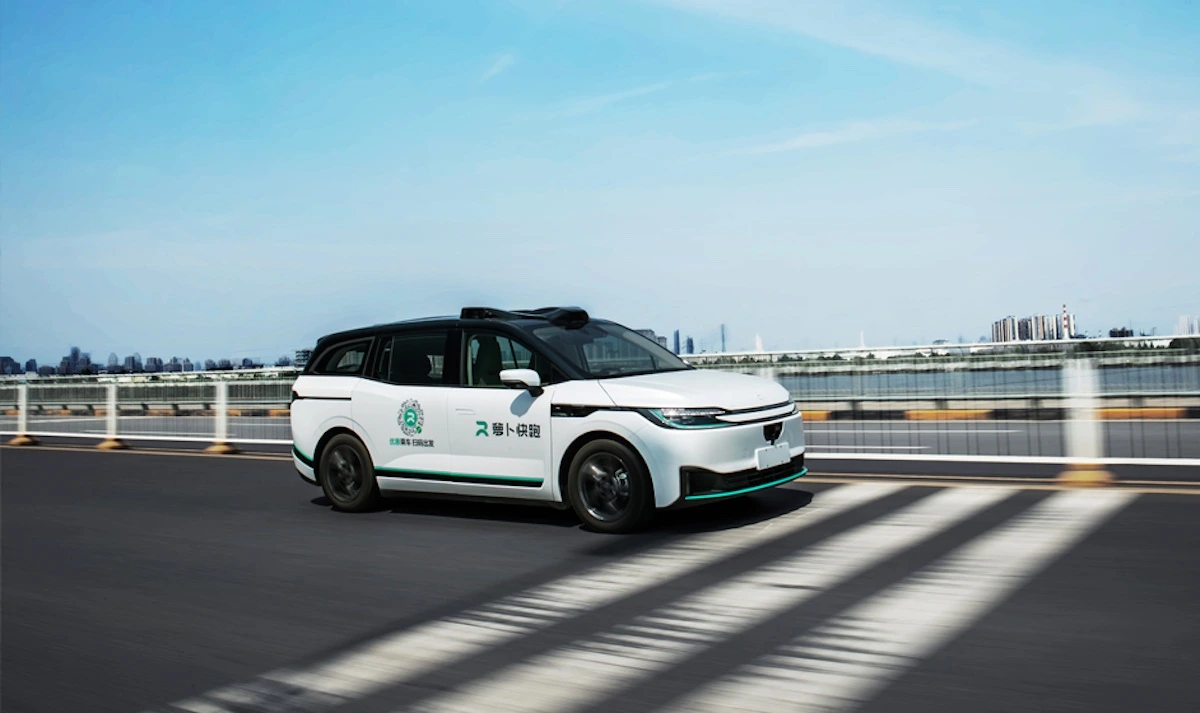BEIJING (TECHY QUANTUM) — Chinese technology giant Baidu is preparing to bring its robotaxis to Switzerland, marking its most ambitious move yet in Europe’s self driving market.
The company announced Wednesday that its autonomous unit Apollo Go will begin test operations in December, ahead of a planned launch of steering wheel free robotaxis by early 2027.
Through a partnership with Swiss public transport provider PostBus, Baidu aims to roll out a new driverless service called “AmiGo,” featuring its sixth generation RT6 electric vehicles.
The cars are expected to operate under Level 4 autonomy, meaning they will function entirely without human drivers in designated areas.
The announcement underscores China’s growing push to export its autonomous driving technology. Baidu’s Apollo Go platform already provides more than 11 million rides across major Chinese cities such as Beijing and Wuhan.
In recent months, Baidu has intensified its global expansion. In August, it announced a collaboration with Lyft to deploy Baidu robotaxis in the UK and Germany by 2026.
The following month, it struck a similar agreement with Uber to integrate Apollo Go vehicles onto its ride hailing app outside China and the US.
Europe is becoming the next battleground for driverless taxis. US based Waymo, owned by Alphabet, is preparing tests in London, while Pony.ai plans trials in Luxembourg with automaker Stellantis.
Industry analysts say Switzerland’s combination of strong transport infrastructure and flexible regulations makes it an attractive testing ground for autonomous technology.
“Switzerland’s controlled road environment, safety culture and political stability offer a perfect lab for early robotaxi deployment,” said Eva Müller, a senior mobility analyst at Zurich Mobility Insights.
She added that Baidu’s collaboration with PostBus, a household name in Swiss transport, adds local trust “Public acceptance is easier when innovation comes through a familiar and reliable partner.”
The RT6 model, which Baidu unveiled in 2024, features removable steering controls and a customizable interior. The company claims it can manufacture each unit for under $30,000, potentially cutting operational costs by half compared with Western rivals.
However, experts caution that European safety certification may slow deployment. “The absence of a steering wheel will invite heavy scrutiny from EU regulators,” said Prof. Martin Schneider of ETH Zurich, who studies autonomous mobility systems.
“Even with advanced AI, transparency and accountability will be critical.” The global robotaxi industry is expected to grow at an annual rate above 25 percent through 2030, according to IDTechEx.
As of mid 2025, Apollo Go had more than 1,000 vehicles operating across China, logging millions of autonomous trips.
In comparison, Waymo and Cruise the main US competitors remain limited to select American cities, facing ongoing regulatory delays. Europe’s cautious but evolving regulatory landscape now gives Asian firms like Baidu a chance to move faster.
In St. Gallen, one of the regions likely to host early Baidu robotaxi Switzerland trials, residents expressed a mix of curiosity and caution.
“If it can help fill transport gaps in smaller towns, I’d definitely try it,” said Anna Meier, a local commuter. “But I’d want assurance about safety and weather reliability.”
Martin Keller, who oversees regional transport planning, said, “Baidu’s pilot could complement existing public transport rather than compete with it. That’s the right approach.”
Testing is scheduled to start in December 2025, focusing on Swiss traffic conditions and passenger feedback. If successful, the AmiGo driverless taxi service could be open to the public by early 2027.
Beyond Switzerland, Baidu intends to expand its robotaxi operations to the United Kingdom, Germany, and other EU countries, as part of a broader effort to establish a global autonomous mobility footprint.
“Europe is cautious but ready,” said Müller. “If the Swiss rollout proves safe and efficient, it could accelerate adoption across the continent.”
Baidu’s decision to test its Apollo Go robotaxi in Switzerland signals a pivotal moment in the international race for self driving taxis.
As the company prepares to deploy vehicles without steering wheels, the experiment could define how Europe welcomes or resists the next generation of driverless transportation.
